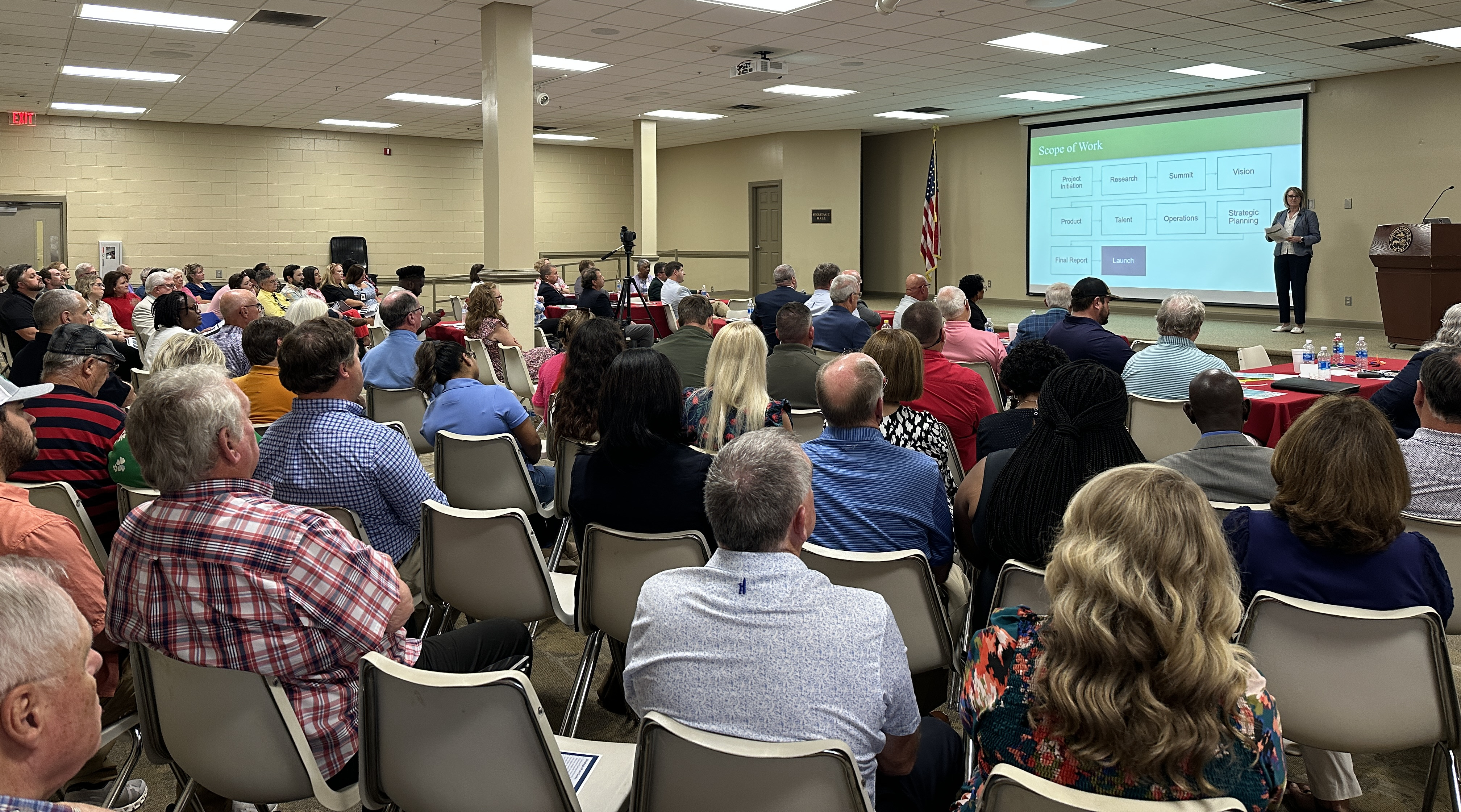


Sampson County has unveiled and adopted a bold new three-year economic development strategic plan designed to tackle pressing challenges and lay the foundation for a more resilient, prosperous future for its residents.
Like many rural communities, Sampson County is navigating key transitions, including shifts in population, evolving residential growth patterns, and the need for a more diverse economy. These changes present both challenges and opportunities. The new strategic plan provides a clear, actionable roadmap to build on the county’s strengths, diversify the economy, strengthen infrastructure, and enhance the overall quality of life for residents.
The plan reflects a community-identified goal to foster a forward-looking, collaborative approach to economic growth—safeguarding core values, preserving local traditions and the county's rich agricultural heritage. This balanced approach is designed to benefit both current residents and future generations.
The planning process was led by the team at Creative Economic Development Consulting, under the leadership of Crystal Morphis, and guided by a nine-member Steering Committee who met frequently over five months. Developed through broad collaboration, the plan outlines five strategic goals including:
"This plan provides a roadmap to move from challenges to opportunities," said Allen McLamb, Chair of the Sampson County Board of Commissioners. "By working together across government, business, and community partners, we can create the kind of growth that strengthens our tax base, provides good jobs, and improves quality of life for everyone in Sampson County."
As part of this process, Sampson County also adopted new Vision and Mission Statements for Sampson County Economic Development to guide future efforts:
Vision Statement: A prosperous future powered by strategic partnerships, where economic growth enhances quality of life and preserves the unique character of our community.
Mission Statement: To drive sustainable economic growth by retaining and attracting businesses, supporting entrepreneurship, expanding community capacity, and promoting the county as a vibrant place to live, work, and invest.
“By adopting this new Strategic Plan, the Board of Commissioners have demonstrated their strong commitment to building a brighter economic future for Sampson County,” said Ray Jordan, Director of Sampson County Economic Development (SCED). “This plan reflects a shared vision for economic growth, and we look forward to supporting its implementation in partnership with the Board of Commissioners and our community to enhance economic opportunities across the county.”
By tracking progress and staying adaptable to changing economic conditions, the strategic plan will help coordinate resources, guide investments, and build a stronger, more resilient Sampson County for generations to come.
Implementation will be led by Sampson County Economic Development and supported by the SCED Advisory Board, the Board of Commissioners, as well as public, private, and nonprofit partners and allies.
For more information about the Sampson County Strategic Plan or to get involved in local economic development efforts, please contact Ray Jordan or visit sampsonedc.com.
Thank you for helping us build a stronger future for Sampson County!